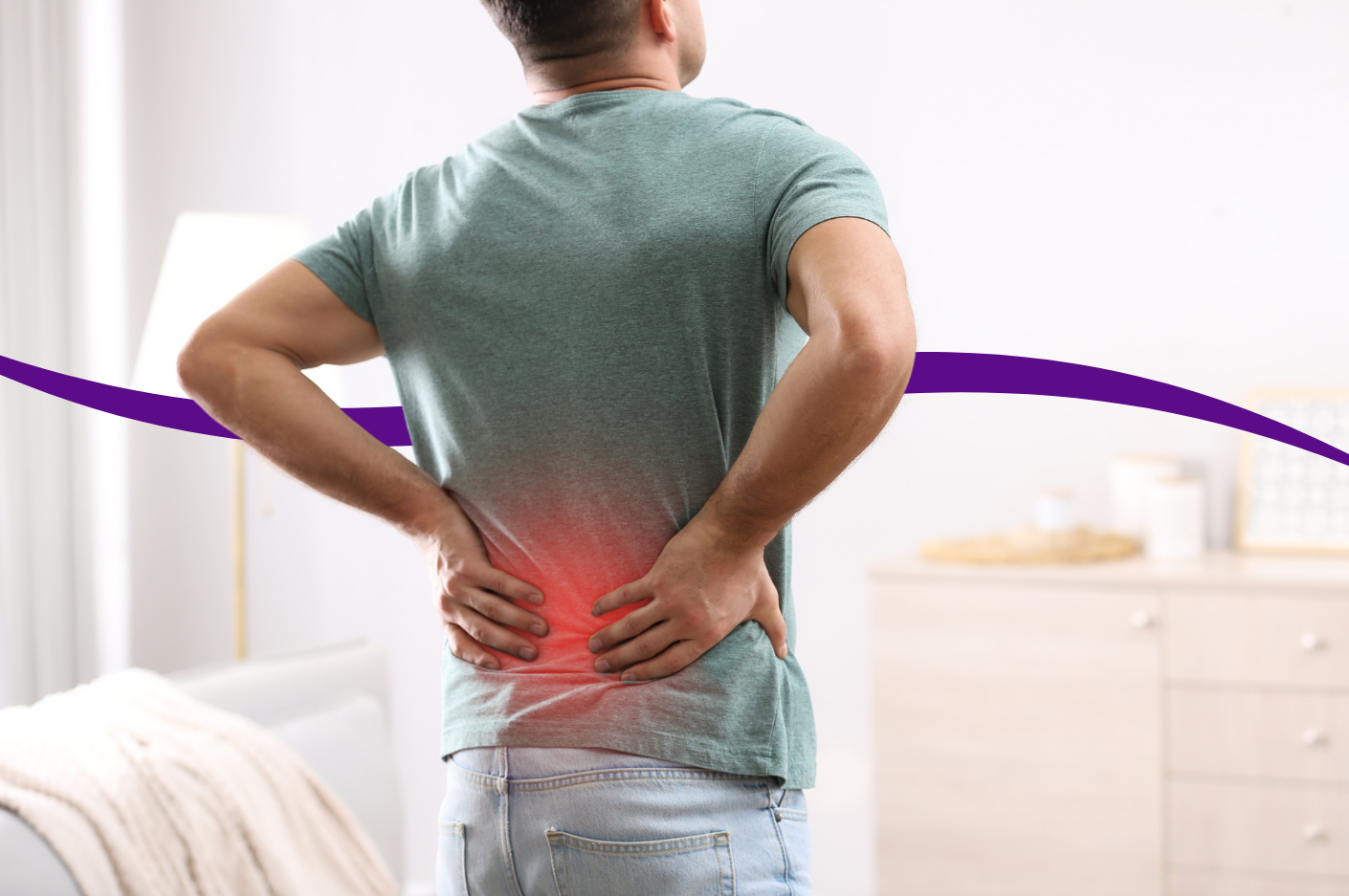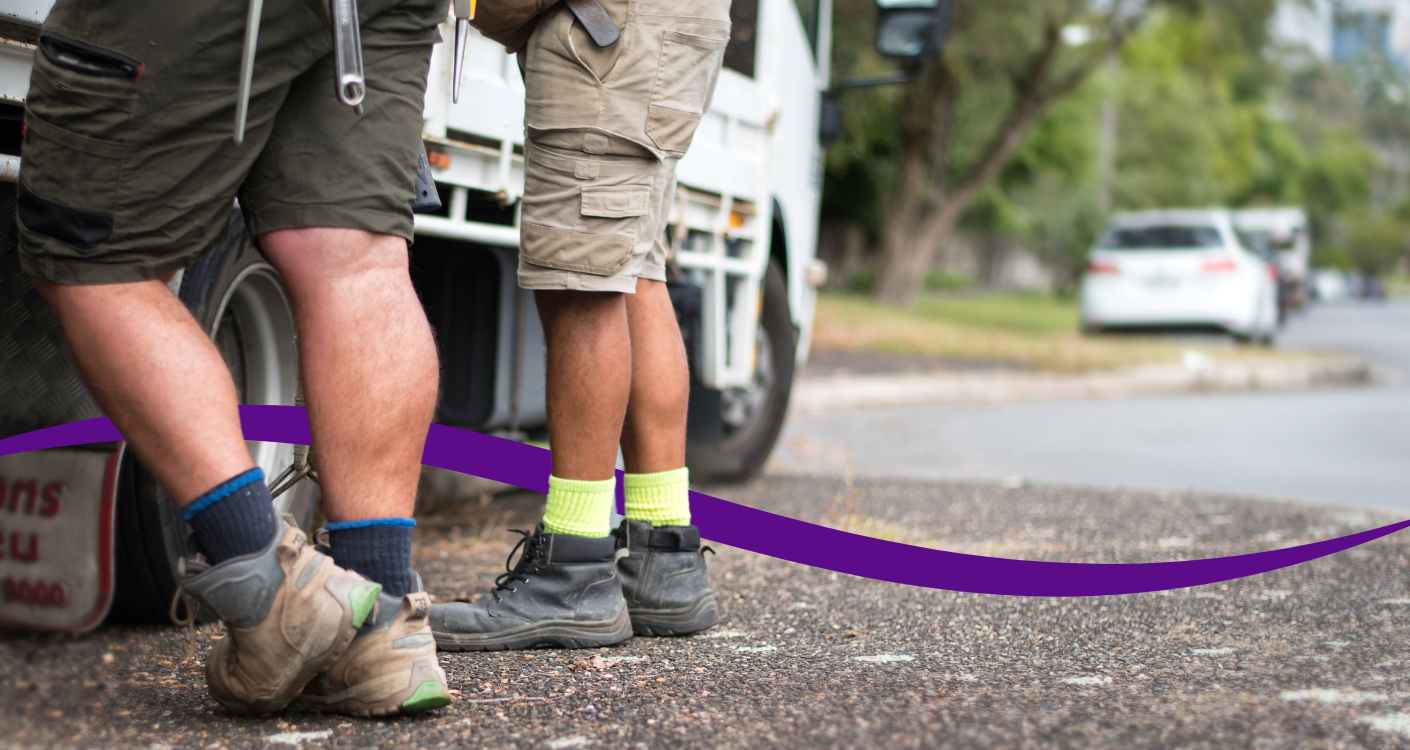

You may already know exactly what your “requirements” are for site-approved work boots, but there’s actually a lot more to having the right work boots that go well beyond their safety specs. The type of work boot you wear day in and day out - especially for many who work long hours on hard or uneven terrain - can significantly impact your comfort, end of day foot and leg fatigue, your injury risk, and your overall well-being.
Here’s what you should know about choosing your work boots - along with some key signs that it may be time to make the switch to a
better suited pair.
Your foot biomechanics, which includes both your foot and leg posture and alignment, as well as how all your muscles, joints, bones and ligaments all work together while you’re walking, plays a large part in your daily comfort on your feet - and explains why some people can find certain work boots exceptionally comfortable, while others suffer in silence.
Certain biomechanical factors such as having flat feet or high arches, having prominent bones or joints which means increased pressure to that area, or even having bunions, hammertoes or stiff or less mobile joints (whether it’s from arthritis, a previous injury or something else) can all greatly affect the comfort and suitability of your work boots.
Our podiatry tip here is that it doesn’t matter whether your work boots
have the highest safety rating, hundreds of five-star reviews, or they’re worn by a lot of people at your workplace. If
you’re getting foot or legs aches or pains at the end of your workday, even just general leg fatigue that leaves you needing to put
your feet up for a couple of hours every night, it’s a sign that something is going wrong and that some adjustments should be made to
better support your foot health and comfort - especially before it turns into an injury or a condition that sees you requiring time off
work. The answer could be as simple as having some work boot-specific orthotics to optimise your foot biomechanics and your comfort - which
can quickly leave you feeling like you’re wearing a whole new (and much more comfortable) pair of boots.
Here’s a prime comfort factor that is often disregarded: the weight of your work boots. We’ve seen work boots range from a comfortable, standard weight - to ones that seem to equate weight with quality or protection, perhaps hoping that workers will select what feels like the “heavier and sturdier” choice. While some people can wear heavier boots with ease - likely because they don’t have any underlying foot or leg problems and have adequate strength to see them through their days without discomfort, there are many others that struggle with heavier boots.
When you select heavier boots, you ask your feet and legs to manage additional stress and strain with every step you take - hour after hour, day after day, and regardless of any other circumstances like when you’re climbing up and down stairs or ladders all day. So it’s not surprising that after a while, it can get too much, and end-of-day leg fatigue becomes commonplace in your life.
The truth is that your boots don’t have to be overly heavy to meet all of their safety requirements like having a safety cap,
electrical and thermal protection, and meeting the AS2210 compliance guidelines for safety boots. There are plenty of options to explore,
and our podiatrists are always here to help. We can even make custom boot modifications
to help you feel your best and get the perfect boot fit.
Yeah, it’s an obvious one - but it’s also one of the key factors that can make a massive difference. When your work boots are organised by your workplace, it’s not uncommon to receive your boots simply by your head office asking what size you are, and then ordering you a pair of their ‘approved’ boot range for your size. Unfortunately, a lot of safety boots don’t work that way, with the sizing varying greatly between brands and the best size for you changing based on the features of the shoe (like the size and height of their toe box and the depth of their heel cup). Don’t forget that your feet can change too - we can gain or lose weight, our feet may be more prone to swelling over the years (especially in the hot summer months), we may need to account for the use of custom foot orthotics inside our boots - simply put, there are plenty of factors that means your “standard” size isn’t actually the right one. Here are a few things to look for:
Socks are also worth a mention here, particularly with materials like cotton giving you a higher likelihood of sweaty, slippery feet - that puts you at a higher risk of foot odour and infections like Athlete’s foot and fungal nails. We recommend:
Finally, the right boots can quickly become the wrong boots if they’ve been exposed to significant wear and tear from use over time, and haven’t been replaced soon enough. Keep an eye on:
Bring them along to your next appointment if you’re experiencing any foot or leg pain, end-of-day fatigue, or other foot problems. We’ll be happy to examine them and their performance and support when you’re wearing them, and can provide you with options for modifications or the addition of foot orthotics to optimise their function and comfort if needed.
Book your appointment with our podiatry team online here or call us on (07) 3356 3579.
| Monday | 7:40am - 6:00pm |
| Tuesday | 7:40am - 6:00pm |
| Wednesday | 7:40am - 6:00pm |
| Thursday |
7:40am - 6:00pm |
| Friday | TEMP CLOSED |
| Saturday | CLOSED |
| Sunday | CLOSED |
Ground Floor, 344 Queen Street,
Brisbane City QLD 4000
| Monday | 7:40am - 6:00pm |
| Tuesday | 7:40am - 6:00pm |
| Wednesday | 7:40am - 6:00pm |
| Thursday |
7:40am - 6:30pm |
| Friday | 7:40am - 5:00pm |
| Saturday | 7:40am - 4:30pm |
| Sunday | CLOSED |
Newmarket Village, 114/400 Newmarket Rd, Newmarket QLD 4051